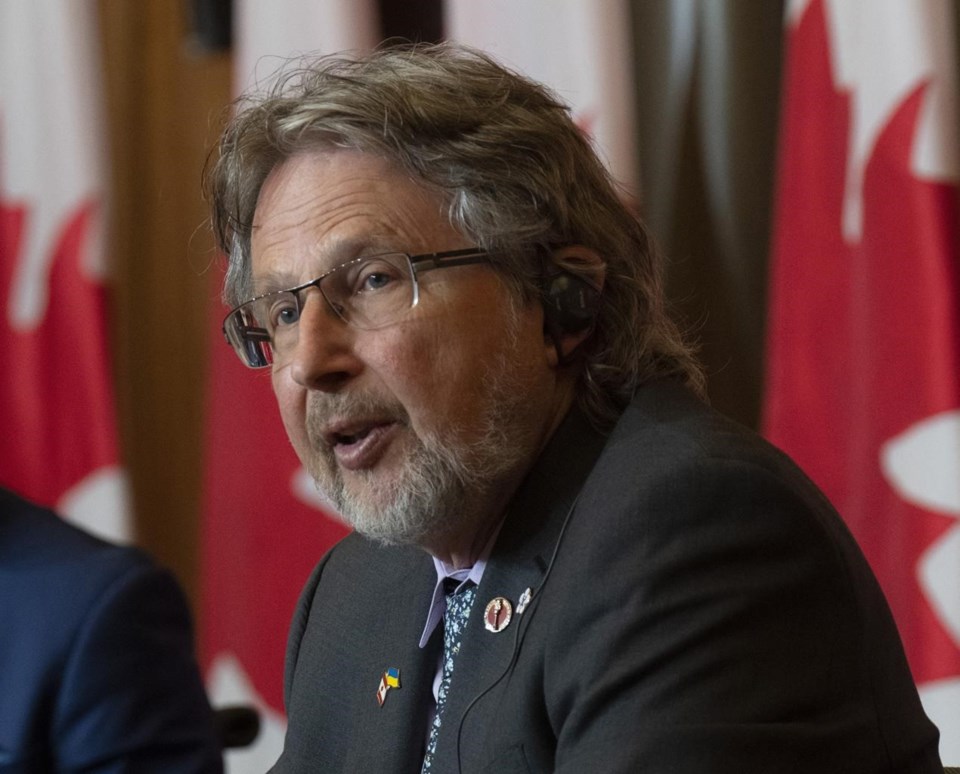OTTAWA — John Scully wants to know that a medically-assisted death would be an option for him, should he want one.
The former war correspondent suffers from severe mental illness, a mix of post-traumatic stress disorder, depression and anxiety.
He is speaking out again as the Liberals face a looming decision about whether to proceed with an expansion of medically assisted dying currently set to take effect in March.
Medical assistance in dying has been legal in Canada since 2016. In 2021 Parliament approved expanding the eligibility criteria to include those with a mental disorder as their sole underlying condition.
That change was to come into effect in March 2023 but just before it did, the Liberal government paused it for another year in the face of widespread concerns over possible consequences.
Opponents to the change, including some disability advocates, have expressed concern over whether it will further open the door to abuse and coercion, and that people will choose to end their lives when what they really need is better access to support, including housing and mental health care.
A joint committee of parliamentarians was asked last fall to study the question whether the health-care system was ready and the Liberals now face the choice of whether to go ahead with broadening the rules.
Justice Minister Arif Virani told The Canadian Press last month he would look carefully at what the committee recommends, opening the door to once again pausing the plan to expand eligibility.
Scully says he regularly experiences terrible nightmares, which he says leave him sleep deprived and are a result of his career as a journalist.
The 82-year-old has tried, as he puts it, "every single method of treatment known science," and nothing has worked. He has tried to kill himself twice and doesn't want to again.
"I want some peace and I want some quiet in my death," he said in an interview Monday.
What Scully wants is the option to die with medical assistance.
"Not as a definitive, 'I want to die now.' I want it there as an option to suicide," he says.
"I want the comfort of knowing that (medically assisted dying) is there for me and for all the people like me who cannot or don't want to speak out about the suffering and the hell they're going through — and to avoid the hell of suicide."
Sen. Stan Kutcher, a psychiatrist from Nova Scotia, argued in favour of expanding the law to include mental illnesses. He sat on the committee which studied the issue last year and said he believes the courts have ruled that Canadians should have access to medical assistance in dying on a case-by-case basis. He said he expects Canada's attorney general "would adhere to the Charter."
But while the senator and other proponents of the expansion say excluding those with mental disorders amounts to discrimination and would likely lead to a future court challenge, one constitutional law expert says there remain "big question marks" on that issue.
"Anyone can bring a case, anyone can bring a Charter challenge," says Kerri Froc, a law professor at the University of New Brunswick.
"The question is, is it going to succeed?"
Froc was among legal and medical experts to submit briefs before the committee of MPs and senators studying the issue, saying in hers that any potential court challenge on the question of whether mental illness alone could qualify a person for a medically assisted death would be "highly contingent" on the set of facts presented.
Froc says she disagrees with arguments that such a future challenge would amount to a "slam dunk."
Still, others such Jocelyn Downie, a professor at Halifax's Dalhousie University, told The Canadian Press last month that another delay on the expansion could force individuals who are suffering intolerably to have to go to court, as others have in the past.
The federal government moved to legalized medical assistance in dying after a 2015 Supreme Court of Canada decision, which ruled the part of the Criminal Code prohibiting doctors from doing so to be unconstitutional in situations where a person was suffering with a "grievous and irremediable medical condition," whether it be from an illness, disease or disability.
The updated law Parliament passed in 2021 was also in response to a 2019 court decision, from the Superior Court of Québec that found it was unconstitutional to make it a requirement that medically-assisted dying be limited to someone whose natural death was "reasonably foreseeable."
But during debate over a bill introduced to amend medically assisted dying legislation to reflect that court decision, the Senate added an amendment to include those whose sole reason for seeking an assisted death to be a mental disorder. The House of Commons accepted that change and the bill passed.
The reaction was swift.
More than 30 law professors signed an open letter last year which said it was “reckless” to suggest that a constitutional right to assisted dying for such patients would be recognized by the courts.
Scully said Monday that if the federal Liberals decide to delay that expansion again, the only option it would leave him wanting to die would be suicide.
He says it would also amount to a "betrayal of every person who is desperately mentally ill."
"To tell me that here's hope around the corner for me — I've looked around the corner and there's nothing there. There is no hope."
---- If you or someone you know is thinking about suicide, support is available 24/7 by calling Talk Suicide Canada (1-833-456-4566) or texting 45645 in the evenings. Residents of Quebec can call 1-866-APPELLE (1-866-277-3553) or visit suicide.ca for support by text and online chat.
This report by The Canadian Press was first published Jan. 8, 2024.
Stephanie Taylor, The Canadian Press



